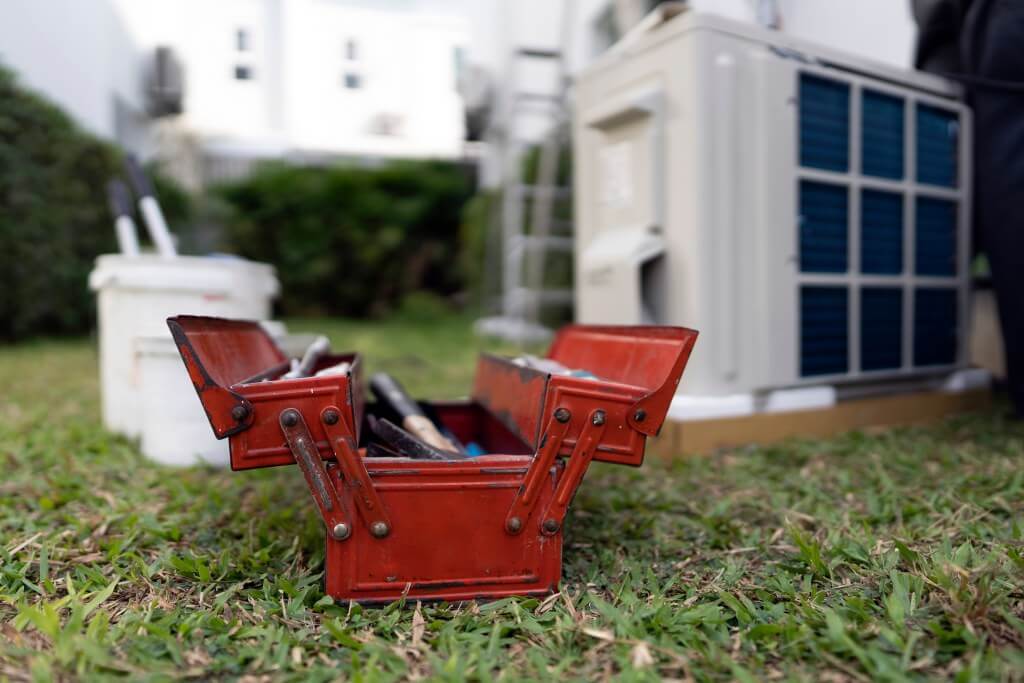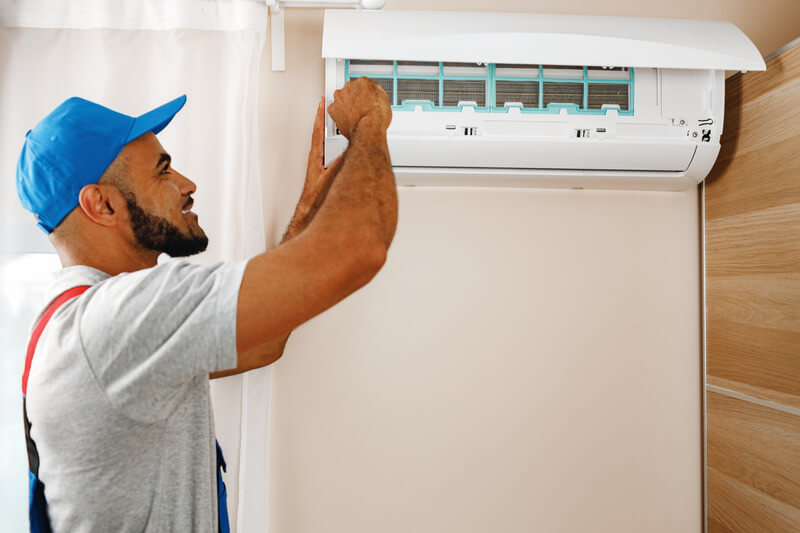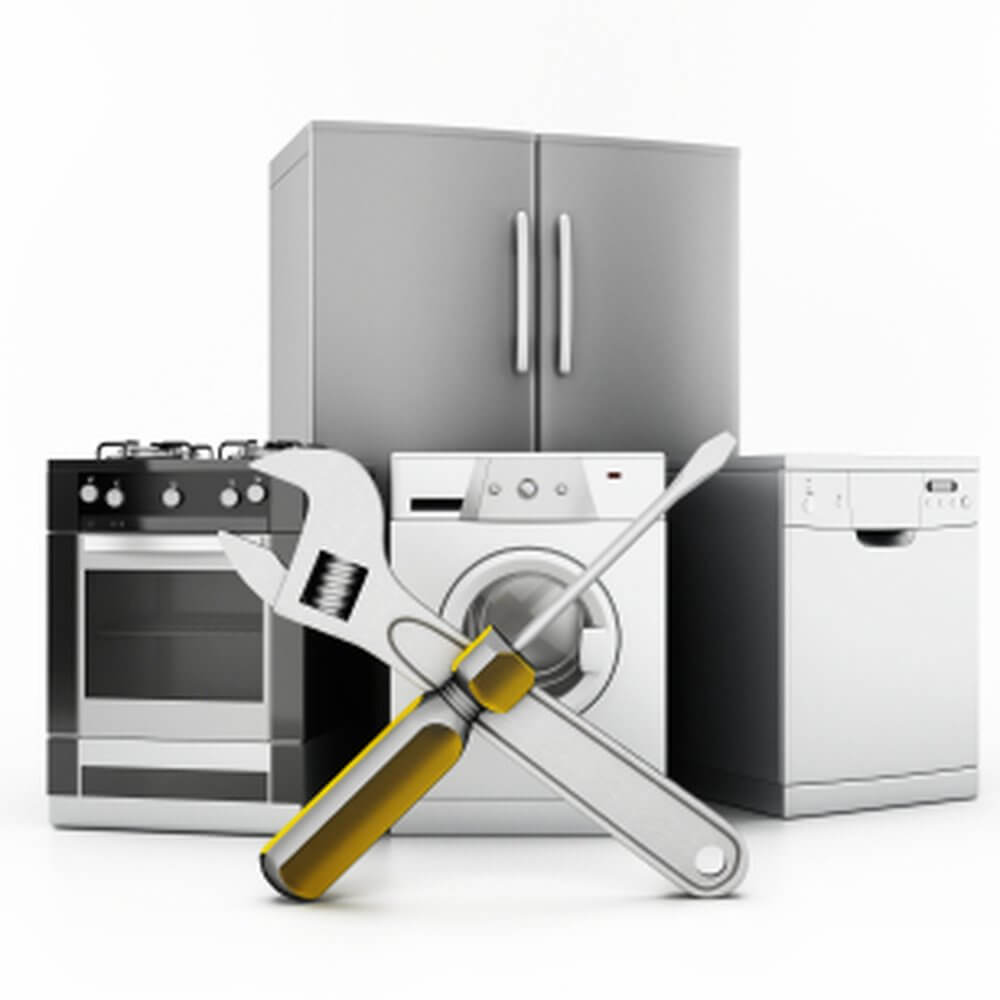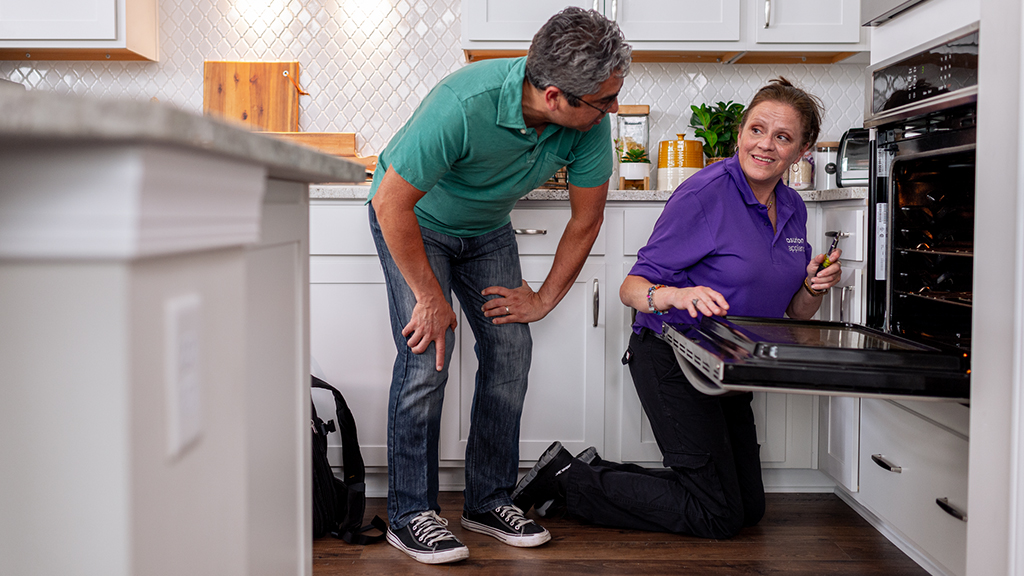
Aging gracefully in the comfort of your own home is a dream many of us share. The ability to live independently as we grow older is a goal that’s becoming increasingly achievable, thanks to advancements in healthcare and our understanding of the aging process. But, to truly savor the joys of aging in place, it’s crucial to ensure that your home remains a safe and functional environment. And that’s where appliance repair for aging in place comes into play.
In this extensive guide, we’ll explore the vital role that appliance repair plays in enabling seniors to maintain their independence and comfort at home. We’ll delve deep into why it’s essential, provide a step-by-step approach to tackle repairs, discuss common appliance issues, and even share expert tips to keep your appliances in tip-top shape. So, let’s embark on this journey of empowerment and convenience!
Why Appliance Repair Matters for Aging in Place
As we age, the appliances in our homes become more than just convenient gadgets; they’re lifelines to maintaining independence and ensuring our well-being. Here’s why prioritizing appliance repair is crucial when aging in place:
- Safety and Peace of Mind: Safety should be the top priority when aging in place. Malfunctioning appliances can pose significant safety risks for seniors. Gas leaks, electrical hazards, or kitchen fires are not only frightening but potentially life-threatening. Keeping your appliances in good working order brings peace of mind, knowing that your home is a safe haven.
- Convenience and Routine: Aging in place is all about maintaining a sense of normalcy and independence. A broken dishwasher, washing machine, or microwave can disrupt daily routines. These inconveniences can snowball into bigger challenges. Repairs ensure that your daily activities continue without hitches, allowing you to focus on what truly matters.
- Cost-Effective Solutions: Replacing appliances can be a significant financial burden, especially for seniors on a fixed income. Appliance repair is often a more budget-friendly option. It allows you to extend the life of your appliances without breaking the bank.
- Sustainability and Environment: By repairing appliances instead of replacing them, you contribute to a more sustainable lifestyle. The production and disposal of appliances have a substantial environmental footprint. Repairing appliances helps reduce waste and conserve resources, which is a win-win for you and the planet.
The Art of Appliance Repair for Aging in Place
Now that we understand why appliance repair is vital for aging in place, let’s delve into the process of getting started.
Identification of Problematic Appliances
Before you can address any issues, you need to identify the problematic appliances. This step requires a keen eye and some basic troubleshooting skills. Here’s how to go about it:
- Keep a Record: Make a list of all your appliances. Note down any issues you’ve observed. This record will serve as a valuable reference.
- Visual Inspection: Examine each appliance for signs of malfunction. Look for unusual sounds, odors, or visual clues like sparks, smoke, or leaks.
- Reference the User Manual: User manuals often contain troubleshooting tips for common problems. Consulting the manual can provide insight into the issue at hand.
Determine Whether DIY or Professional Help is Needed
After identifying the issues, you must decide whether to tackle the repairs yourself or seek professional assistance. Here’s a guideline to help you make that decision:
- DIY Repairs: If the issue is relatively minor, such as a loose wire or clogged filter, and you possess some basic repair skills, you can opt for a do-it-yourself approach. Numerous online tutorials and guides are available to assist you.
- Professional Help: For complex problems, or if you lack confidence in your repair abilities, it’s best to call in the professionals. They have the expertise to diagnose and repair appliances effectively, minimizing the risk of further damage.
Prioritize Safety
Before you embark on any repair, it’s imperative to prioritize safety. Taking the necessary precautions can prevent accidents and injuries. Here are some safety measures to consider:
- Disconnect Power: Always unplug or disconnect the appliance from the power source before attempting any repairs. This step prevents electrical shocks and other hazards.
- Safety Gear: Wear appropriate safety gear, including gloves and safety glasses, to protect yourself from any potential mishaps.
Gather the Essential Tools
If you choose to take the DIY route, gather the necessary tools. Here’s a list of common tools required for appliance repair:
- Screwdrivers
- Pliers
- Wrenches
- Multimeter (for electrical diagnostics)
- Flashlight
- Basic repair kit (including screws, nuts, and bolts)
Consult the User Manual
The user manual is an often-overlooked resource that can provide valuable insights into your appliance’s functioning and troubleshooting. It may contain step-by-step instructions for common problems, helping you diagnose and fix issues with confidence.
Replacement Parts
In some cases, a malfunctioning appliance may require replacement parts. To ensure a successful repair, you must:
- Identify the specific part that needs replacement, which can often be found in the user manual or through online research.
- Purchase the correct replacement part based on the appliance’s model number and specifications.
Regular Maintenance
Prevention is the key to avoiding major breakdowns. Regular appliance maintenance can extend their lifespan and reduce the likelihood of unexpected failures. Here are some maintenance tasks to consider:
- Clean filters, vents, and coils to prevent blockages and improve efficiency.
- Check for leaks, loose connections, or unusual noises.
- Replace worn-out parts before they cause extensive damage.
Creating a maintenance schedule can help you stay organized and ensure that you don’t overlook important tasks. It’s like giving your appliances a spa day, keeping them in top-notch condition.
Energy Efficiency Considerations
As you make appliance repairs or replacements, consider investing in energy-efficient appliances. These models not only save you money in the long run but also contribute to a more sustainable environment. Look for ENERGY STAR-certified appliances to maximize energy efficiency.
Common Appliance Repairs for Aging in Place

Understanding common appliance issues and their solutions is crucial when preparing for aging in place. Let’s take a closer look at some typical problems you might encounter with various appliances:
Refrigerator Repair
Common Issues:
- Leaking water
- Inadequate cooling
- Unusual noises
Repair Tips:
- Clean the condenser coils regularly to prevent overheating.
- Check the gaskets on the refrigerator doors for wear and tear.
- Replace the thermostat if it’s malfunctioning, affecting the temperature control.
Washing Machine Repair
Common Issues:
- Failure to drain
- Inability to spin
- Vibrations and unusual noises
Repair Tips:
- Clean the lint filter and drain pump regularly to prevent clogs.
- Inspect the drain hose for obstructions.
- Check the drive belt for signs of wear and replace if necessary.
Dishwasher Repair
Common Issues:
- Inefficient cleaning
- Water not draining
- Strange odors
Repair Tips:
- Clear any debris or food particles from the dishwasher’s spray arms.
- Inspect and clean the drain pump to ensure proper drainage.
- Use dishwasher cleaner to eliminate odors and residue buildup.
Oven/Range Repair
Common Issues:
- Uneven heating
- Faulty burners or elements
- Temperature inaccuracies
Repair Tips:
- Replace the heating element if it’s malfunctioning and causing uneven heating.
- Clean the burners and igniters regularly to ensure proper ignition.
- Calibrate the oven temperature to address inaccuracies.
Microwave Repair
Common Issues:
- Inability to heat food
- Turntable not rotating
- Unusual noises during operation
Repair Tips:
- Test the magnetron, the component responsible for generating microwave heat.
- Inspect the turntable motor and replace it if it’s not functioning correctly.
- Check the door switch for proper operation.
Coffee Maker Repair
Common Issues:
- Dripping or leaking
- Failure to brew coffee
- Inadequate heating
Repair Tips:
- Clean the coffee maker regularly, including the coffee basket and water reservoir.
- Replace worn-out parts, such as the heating element or the water pump, as needed.
- Use a descaling solution to eliminate mineral buildup that can affect the machine’s performance.
Toaster/Toaster Oven Repair
Common Issues:
- Uneven toasting
- Inability to heat adequately
- Stuck or jammed mechanism
Repair Tips:
- Clean the toaster or toaster oven regularly to remove crumbs and debris.
- Check the heating elements for signs of damage and replace if necessary.
- Lubricate any moving parts to prevent sticking or jamming.
Expert Tips for Successful Appliance Repair

To ensure the success of your appliance repair endeavors, consider these expert tips:
- Safety Gear and Precautions: Always prioritize safety by wearing the appropriate safety gear. Additionally, unplug or disconnect the appliance from the power source to avoid electrical hazards.
- Organization is Key: Staying organized during the repair process is crucial. Keep track of the screws, bolts, and parts you remove. Using small ziplock bags or containers can help you avoid confusion during reassembly.
- Leverage Online Resources: The internet is a treasure trove of information, and you’ll find numerous resources and forums dedicated to appliance repair. These can be invaluable when troubleshooting issues or seeking guidance from others who have faced similar problems.
- Regular Cleaning and Maintenance: Proactive maintenance can prevent many appliance issues. Cleaning filters, vents, and components regularly can keep your appliances functioning optimally. Additionally, replace worn-out or damaged parts promptly to prevent further damage.
- Know Your Limits: Recognize when a repair job exceeds your capabilities. It’s essential to know when to call in professionals to avoid causing further damage or risking your safety.
- Consider Energy Efficiency: When replacing appliances or purchasing new ones, opt for energy-efficient models. These appliances can save you money on utility bills and reduce your environmental impact.
Final Words
Aging in place is about cherishing the comfort and familiarity of your own home as you grow older. Your appliances are more than just machines; they’re your companions in this journey. Maintaining these appliances through timely repairs ensures that your home remains a haven of safety, convenience, and independence.
The next time your coffee maker stumbles or your refrigerator falters, don’t fret. Take a deep breath, follow the steps outlined in this guide, and reclaim control over your home’s well-being. It’s your sanctuary, and it should always be a place of comfort and convenience.
With the right approach, a dash of do-it-yourself spirit, and the occasional guidance of experts, you can keep your home humming along smoothly, just as you deserve. Aging in place is not just a concept; it’s a way of life, and it’s within your reach.
May your appliances continue to serve you well, ensuring that your journey of aging in place remains a rewarding and empowering experience.
Frequently Asked Questions (FAQ) – Appliance Repair for Aging in Place
Got questions about appliance repair for aging in place? We’ve got answers! Check out our comprehensive list of frequently asked questions to guide you through the world of maintaining your appliances while enjoying the comfort of aging in place.
1. Why is appliance repair important for aging in place?
Appliance repair is essential for aging in place because it ensures the safety, convenience, and cost-effectiveness of your home environment. Malfunctioning appliances can pose safety risks, disrupt daily routines, and strain your budget with replacements.
2. Can I attempt appliance repairs on my own, or should I hire a professional?
It depends on the complexity of the issue and your level of expertise. Minor problems like loose wires or clogged filters can often be tackled with DIY repairs. However, for more complex issues or if you’re not confident in your repair skills, it’s advisable to seek professional help to prevent further damage.
3. What safety precautions should I take before attempting appliance repairs?
Safety should always come first. Here are some crucial safety precautions to follow:
- Disconnect the appliance from the power source.
- Wear appropriate safety gear, such as gloves and safety glasses.
- Work in a well-ventilated area to avoid inhaling harmful fumes or gases.
4. What tools do I need for DIY appliance repairs?
Common tools you might need for DIY repairs include screwdrivers, pliers, wrenches, a multimeter for electrical diagnostics, a flashlight, and a basic repair kit with screws, nuts, and bolts.
5. How can I identify which part needs replacement in my malfunctioning appliance?
You can identify the specific part that needs replacement by consulting the user manual, conducting online research, or using the appliance’s model number. These sources can guide you to the correct replacement part.
6. What are some common appliance maintenance tasks I should perform regularly?
To keep your appliances in good working order, consider these regular maintenance tasks:
- Cleaning filters, vents, and coils to prevent blockages.
- Checking for leaks, loose connections, or unusual noises.
- Replacing worn-out parts before they lead to more extensive issues.
7. Are there energy-efficient appliances suitable for aging in place?
Yes, energy-efficient appliances are ideal for aging in place. These models not only save you money in the long run but also contribute to a more sustainable environment. Look for ENERGY STAR-certified appliances for maximum energy efficiency.
8. What are some expert tips for successful appliance repairs?
To ensure successful appliance repairs, consider the following expert tips:
- Prioritize safety by wearing appropriate gear and disconnecting the power.
- Stay organized by keeping track of screws and parts during disassembly.
- Use online resources and forums for troubleshooting guidance.
- Perform regular cleaning and maintenance to prevent issues.
- Recognize your limitations and call in professionals when needed.
- Consider energy efficiency when purchasing or replacing appliances.
9. How can I prevent appliance issues in the first place?
Prevention is the best approach to avoiding appliance issues. Regularly clean and maintain your appliances, follow the manufacturer’s guidelines for care, and be proactive in addressing minor problems before they become major repairs.
10. Is appliance repair more cost-effective than appliance replacement for aging in place?
In many cases, appliance repair is more cost-effective than replacement. It allows you to extend the lifespan of your appliances without the financial burden of purchasing new ones. However, the decision should be based on the severity of the issue and the appliance’s overall condition.
11. What do I do if I encounter a problem beyond my repair skills?
If you encounter a problem that is beyond your repair skills or poses safety risks, it’s best to seek professional help. Calling in experts ensures a safe and effective solution to the issue.
12. How often should I schedule professional appliance maintenance checks?
The frequency of professional appliance maintenance checks may vary depending on the appliance type and usage. As a general rule of thumb, consider scheduling a professional check-up every 1-2 years for each appliance to ensure optimal performance and safety.
13. Where can I find replacement parts for my appliances?
You can find replacement parts for your appliances through various sources, including:
- Manufacturer’s official website or service centers.
- Local appliance repair shops or stores.
- Online marketplaces specializing in appliance parts.
14. Are there any appliance maintenance tasks that I should not attempt on my own?
Tasks involving the appliance’s internal wiring, gas connections, or complex electrical components should not be attempted by individuals without proper training and expertise. It’s essential to leave these tasks to qualified professionals to ensure safety.
15. Can appliance repairs contribute to environmental sustainability?
Yes, appliance repairs contribute to environmental sustainability by reducing waste generated from disposing of old appliances. Repairing existing appliances helps conserve resources and decrease the environmental impact associated with manufacturing new ones.
